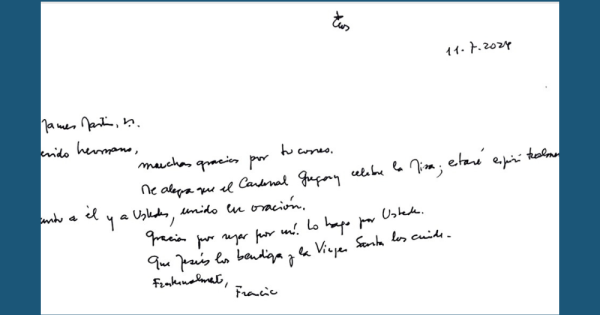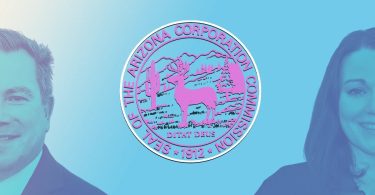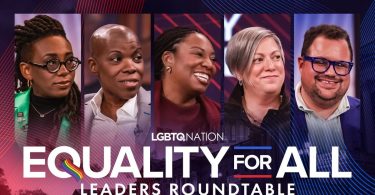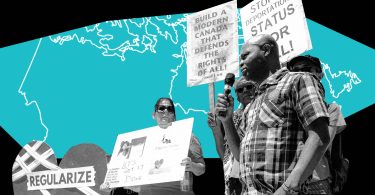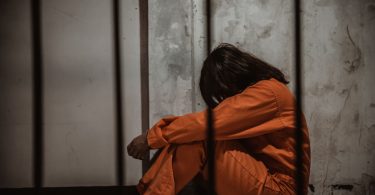In a brief letter sent to Jesuit Fr. James Martin, Pope Francis said he was “glad” that Cardinal Wilton Gregory of Washington, D.C., will celebrate Mass on the morning of Saturday, Aug. 3, for attendees of the Outreach 2024 LGBTQ Catholic Ministry Conference hosted by Georgetown University in Washington, D.C., Aug. 2-4.
“I will be spiritually with him and with all of you, united in prayer,” Francis wrote.
It’s the first year a cardinal will attend the annual gathering in the three years since Martin founded Outreach in 2022. Hoping to make the church a “more welcoming” place, Martin said that the goal of Outreach is “to celebrate and elevate the LGBTQ Catholic experience,” eventually building a lasting community through the conference.
‘In spite of the sometimes-negative things that the church says about LGBTQ Catholics, they stay in the church, and there’s an intentionality about going to a community where they feel supported and loved.’—Fr. Michael Trail
About 350 attendees and panelists from across the United States and abroad — including Catholic LGBTQ lay people, clergy, scholars, artists, educators and students, and family members and friends who are allies — are expected to take part in this year’s conference panels, prayer services, Masses and social hours.
In a letter that Gregory wrote to the participants in which he quotes Francis on the importance of community prayer, he said that “with this conference, you are providing a safe place for individuals, families, and friends to pray, discern, and grow in their love and understanding of the teachings of the Church.”
“Your extensive work to share best practices and worship together represents a much-needed ministry that is undeniably building bridges and seeking to heal wounds. I thank you for your efforts,” Gregory added.
Panels will include topics related to Catholic LQBTQ life and community, such as LGBTQ ministries in American parishes, Bible and homosexuality, LGBTQ Catholic storytelling on social media, current challenges of transgender Catholics, parenting LGBTQ children, and more. The last panel, scheduled for the morning of Sunday, Aug. 4, is titled “Outlook from Rome,” in which Martin and NCR Vatican correspondent Christopher White will comment on the latest from the Vatican on LGBTQ issues.
Although no participant discussion groups are scheduled after the individual panels, there will be time to socialize and exchange feedback, said Outreach executive director Michael O’Loughlin and managing editor Ryan Di Corpo in a preview Zoom session for attendees. One such opportunity will come during evening prayer at Holy Trinity Catholic Church in Washington, D.C., at 9:30 p.m. Saturday, Aug. 3, when some participants will share personal stories among moments of prayer.
After attending the 2023 conference as a participant, this year transgender Catholic writer Maxwell Kuzma will be a panelist on “Transgender Catholics and the Church,” moderated by NCR staff reporter Katie Collins Scott. Kuzma said that over recent years, he has observed a troubling rise in anti-transgender sentiment in the church, which has increasingly entered mainstream discourse, especially on social media. Kuzma attributed this shift to the sudden visibility of transgender individuals, who, after years of being largely overlooked, are now in the spotlight in light of recent Vaticandocuments and right-wing political activism.
The sense of community and inclusiveness at the 2023 Outreach conference represented a deeply moving time for Kuzma, who anticipated that one of his priorities at this year’s conference will be “celebrating queer theology and trans joy.” These aspects, Kuzma noted, are often missing from mainstream conversations about transgender issues, as was the case in the Vatican’s April 2024 document Dignitas Infinita, which condemns “gender theory.”
“It seems pretty clear to most transgender Catholic people who have read that portion of Dignitas Infinita that relates to gender that no transgender people were really spoken to or consulted about that portion itself. And that’s just a huge missed opportunity to really see what transgender people bring in terms of diversity and gifts,” Kuzma said.
Fr. Michael Trail, pastor at St. Thomas the Apostle Parish in Chicago, will speak on the panel “LGBTQ Ministry in Parishes,” where he will engage with Catholic ministers from LGBTQ parish groups in other cities. In an interview with NCR, Trail reflected on his seminary experience, noting that LGBTQ issues were rarely discussed in the context of how priests are called to minister to the community. It wasn’t until he gained practical experience guided by his mentors, he said, that he began to understand how “the beauty of the Catholic faith can be integrated with the recognition of God’s presence in the LGBTQ community.”
“I think real pastoral work is very messy, and as priests and as pastors, we have to not be afraid to dive into the messiness of people’s lives,” he said.
Trail said that through his involvement with AGLO, the Archdiocese Gay and Lesbian Outreach in Chicago, which has been a part of the archdiocese for the past 36 years, he has witnessed the resilience of LGBTQ Catholics.
“In spite of the sometimes-negative things that the church says about LGBTQ Catholics, they stay in the church, and there’s an intentionality about going to a community where they feel supported and loved. I think that’s why I really feel strong about the work that I do, because I want people to be able to come to a place where they feel loved and seen and supported and heard,” he said.
Trail added he thinks the Outreach Conference will be an opportunity for him to connect with other priests and lay ministers who are engaged in LGBTQ ministry to exchange ideas and strengthen their pastoral care.
“If there is a priest who may be interested in starting something, I’d love to have a conversation with them just to see how I could be helpful or maybe just provide a word of encouragement to say, ‘Look, you can do it, and it’s OK, people will still be there, they’ll still love you, and you’ll still be a good priest for everybody.’ I think that’s what most priests need as we do this work,” Trail said.
‘Being called unnatural or an abomination leads not to life, but to despair.’—Amy-Jill Levine
Amy-Jill Levine, the Rabbi Stanley M. Kessler Distinguished Professor of New Testament and Jewish Studies at Hartford International University for Religion and Peace, will speak in the conference panel “The Bible and Homosexuality.” In an interview via email with NCR, she said that she will “seek to show how biblical interpretations that dehumanize not only LGBTQ people and Jews but also disabled people, people of color, immigrants, and others are contrary to the primary ethics of both love of G-d and love of neighbor.”
Levine argues that Scripture can be read with kindness, compassion and an awareness of science and history. As a biblical expert who identifies as Jewish, she cites the Catholic Church’s positive reinterpretation of the New Testament regarding Jews as an example of how Scripture can be read “generously.” This approach, she suggests, should also be applied to LGBTQ people by prioritizing certain texts over others.
“More generous readings, grounded in biblical studies and based on what the text actually says, can provide enormous comfort,” she said.
Advertisement
In addressing what she called the “clobber passages” of the Bible, often used against LGBTQ individuals, Levine advocates for precise translations from Hebrew and Greek, an understanding of cultural and literary contexts, insights from Jewish and Christian interpretations, and awareness of biological and psychological studies on human diversity. She also stresses the importance of listening to LGBTQ testimonies. These methods, she believes, can provide not only new insights, but also hope.
“What is frequently missed in the culture wars is the harm negative readings promote. So-called ‘reparation therapy’ (designed to ‘fix’ people) does not work,” she added. “One cannot ‘pray the gay away.’ Insisting people remain celibate if they do not have the gift of celibacy (and it is a gift, part of human diversity) strikes me as cruel. Being called unnatural or an abomination leads not to life, but to despair.”

